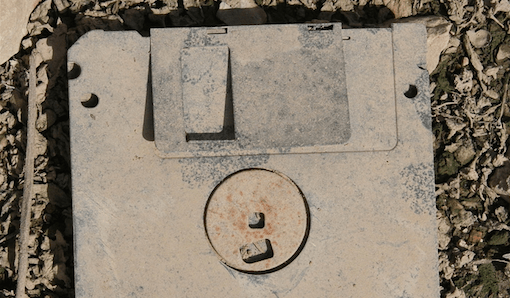Google Exec Warns Of A “Forgotten Century” & the “Digital Dark Age”

There are a lot of questions about our future. Will Jessica Williams be a Daily Show host? Will our Earth hold out and continue to allow us humans to live on it? Will Supernatural outlast us all? And what exactly is going to happen to all of our data when we go through the next mass shift in technology? Google exec and Internet pioneer Vint Cerf is particularly worried about that last part, warning of a “digital Dark Age” in which the records of our time now are eventually swallowed up, inaccessible to future generations and historians.
Speaking to the American Association or the Advancement of Science, Cerf warned that “bit rot” could lead to a “forgotten generation or even a forgotten century,” with The Guardian reporting that he’s calling for “The development of ‘digital vellum’ to preserve old software and hardware so that out-of-date files could be recovered no matter how old they are.”
As all of us have witnessed, technological change-over can happen mighty quickly, and catching your old data up to the progressing times takes effort — just think back to, say, all the photos and messages that were lost during the great Myspace exodus of the mid-2000s, or all those sad, abandoned floppy disks out there in the world. Cerf is worried that, going forward, we don’t think enough about how the massive archive the Internet currently is might not follow us into the next stages unless we truly make the effort to preserve it. As he told The Guardian:
We are nonchalantly throwing all of our data into what could become an information black hole without realizing it. We digitize things because we think we will preserve them, but what we don’t understand is that unless we take other steps, those digital versions may not be any better, and may even be worse, than the artifacts that we digitized. If there are photos you really care about, print them out.
Terms Of Service author Jacob Silverman also spoke to the thinking (or lack thereof) about preservation efforts:
There are not a lot of people working on these kinds of projects. They’re not very commercial questions. And there are not many business incentives for programmers to think about these things.
And Cerf points out:
The rights of preservation might need to be incorporated into our thinking about things like copyright and patents and licensing.
I personally do get quite the kick out of imagining some future historian combing through my Livejournal or Tumblr, so let’s get on this, humanity. Let’s preserve the history we’re making right now.
You can watch Cerf discuss the issue further with BBC here:
(Image via Shutterstock)
Are you following The Mary Sue on Twitter, Facebook, Tumblr, Pinterest, & Google +?
Have a tip we should know? [email protected]